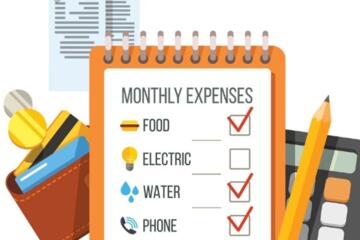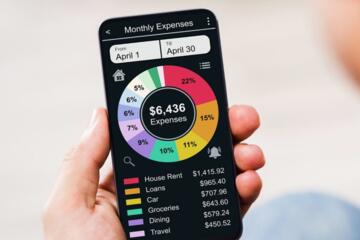It’s not always the big-ticket items that hurt your wallet — it’s the accumulation of small, unnoticed costs. Monthly subscriptions you forgot about, unused memberships, high grocery bills, or energy waste can slowly chip away at your financial stability.
The good news? You don’t have to live like a minimalist monk to save money. With a few simple adjustments, you can free up cash, reduce financial stress, and even make room for your savings goals — whether that’s a vacation, an emergency fund, or paying off debt.
Let’s dive into practical strategies that anyone can start using today.
1. Audit Your Subscriptions
Problem: You're paying for things you don't use or forgot about.
Solution: Cancel what you don't need.
Streaming platforms, apps, magazines, fitness memberships — these can quietly pile up. Go through your bank or credit card statements and make a list of recurring charges.
Quick action plan:
-
Cancel anything you haven’t used in the last 30 days.
-
Consider rotating streaming services — use one at a time.
-
Look for bundled discounts (e.g., Disney+, Hulu, and ESPN).
Pro Tip: Use a free tool like Rocket Money or Mint to track and manage subscriptions automatically.
2. Plan Your Meals and Limit Takeout
Problem: Food spending gets out of hand fast, especially with frequent takeout or impulse grocery runs.
Solution: Meal plan and cook more at home.
You don’t need to be a gourmet chef. Planning just 3–5 meals per week can significantly reduce food waste and the temptation to eat out.
How to do it:
-
Make a grocery list and stick to it.
-
Cook in batches — freeze portions for later.
-
Try themed nights: pasta Monday, taco Tuesday, etc.
Bonus: Bring leftovers for lunch and skip the $12 sandwich.
3. Lower Utility Bills with Simple Tweaks
Problem: High energy and water bills drain your budget.
Solution: Use less — without making life uncomfortable.
Easy changes:
-
Replace old bulbs with energy-efficient LEDs.
-
Unplug devices or use smart power strips.
-
Wash clothes in cold water and hang dry when possible.
-
Set your thermostat a few degrees lower in winter (and higher in summer).
Water-saving tip: Install a low-flow showerhead — it’s cheap, easy to install, and saves both water and heating costs.
4. Reevaluate Your Phone and Internet Plans
Problem: You’re overpaying for data, speed, or features you barely use.
Solution: Shop around or downgrade.
Many carriers offer low-cost plans that fit typical usage. If you're mostly on Wi-Fi, you probably don’t need unlimited data. The same goes for internet — unless you're a gamer or streaming 4K movies constantly, you may be fine with a lower-speed plan.
Action step: Call your provider and ask for current promotions or loyalty discounts. You’d be surprised how often they’ll offer a better deal if you ask.
5. Use Cash-Back and Discount Tools
Problem: You’re missing out on savings every time you shop.
Solution: Automate discounts and rewards.
Free tools to try:
-
Rakuten or Honey for cash back and promo codes online.
-
Upside for gas station rewards.
-
Ibotta for grocery store rebates.
Pro Tip: Use a cash-back credit card responsibly for added benefits — just make sure to pay it off in full each month.
6. Set a Fun Budget — and Stick to It
Problem: Impulse purchases and spontaneous splurges blow your budget.
Solution: Set a specific “fun money” limit.
Budgeting doesn’t mean cutting out everything you enjoy. It means giving yourself permission to spend within boundaries.
How to try it:
-
Decide on a monthly amount (e.g., $50–$100) for entertainment, hobbies, or treats.
-
Track it manually or in a budgeting app.
-
When it’s gone, it’s gone — no guilt, no overspending.
This helps you enjoy your money without going off the rails.
7. Buy in Bulk (When It Makes Sense)
Problem: Frequent small purchases can cost more over time.
Solution: Buy non-perishables and essentials in bulk.
Toilet paper, cleaning supplies, rice, pasta, and canned goods are often cheaper in larger quantities. Just make sure you have storage space and will actually use it before the expiration date.
Tip: Shop warehouse stores or online bulk retailers. Share memberships or split costs with family or friends.
8. Cancel or Pause Auto-Renewing Memberships
Problem: You're locked into memberships you don’t use year-round.
Solution: Pause or cancel when not in use.
Gym memberships, audiobook services, or digital tools may be great in one season — and wasteful in another.
What to do:
-
See if you can pause instead of canceling.
-
Reassess quarterly to make sure you're still getting value.
-
If it renews annually, set a reminder to review before the renewal date.
Final Thoughts: Small Tweaks, Big Impact
Cutting monthly expenses doesn’t have to mean cutting joy. In fact, gaining control over your finances can reduce stress and open the door to more intentional spending. Most of these tips take less than an hour to implement — and some will save you money month after month with little to no effort.
Takeaway: Track your habits, make a few smart changes, and revisit your expenses regularly. Over time, these small adjustments add up to serious savings — without feeling like a sacrifice. Better money habits start with better choices, and now you’ve got the tools to make them.








